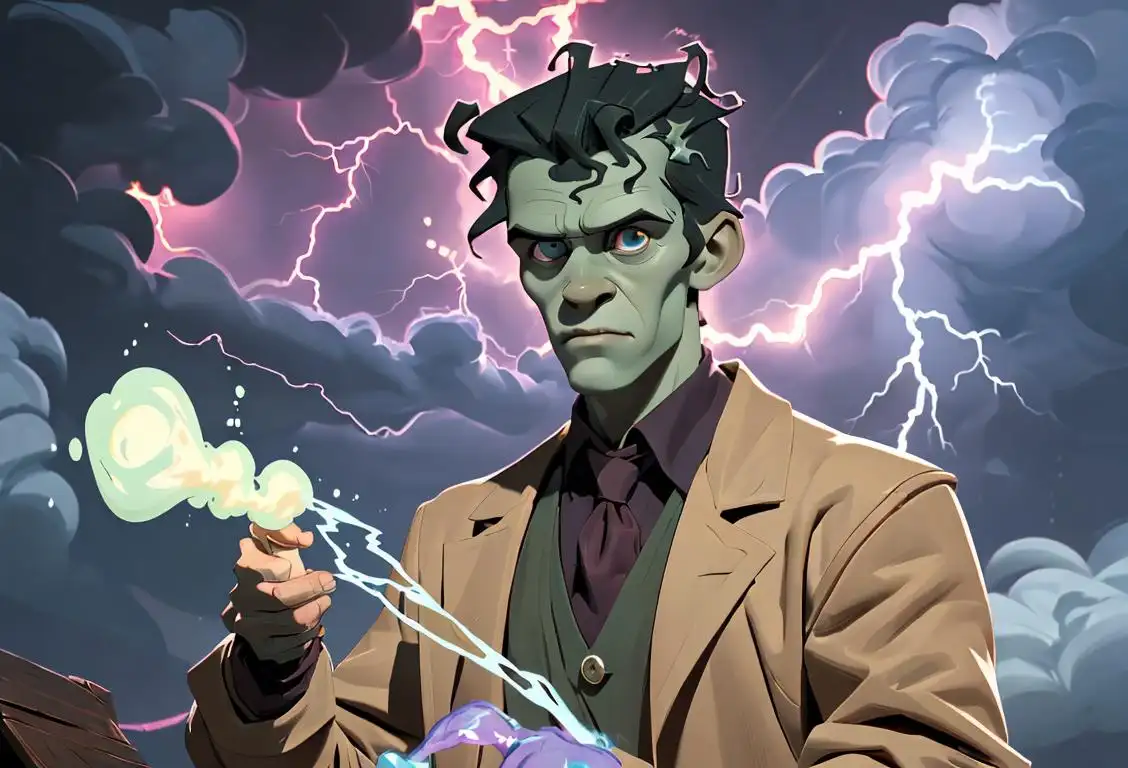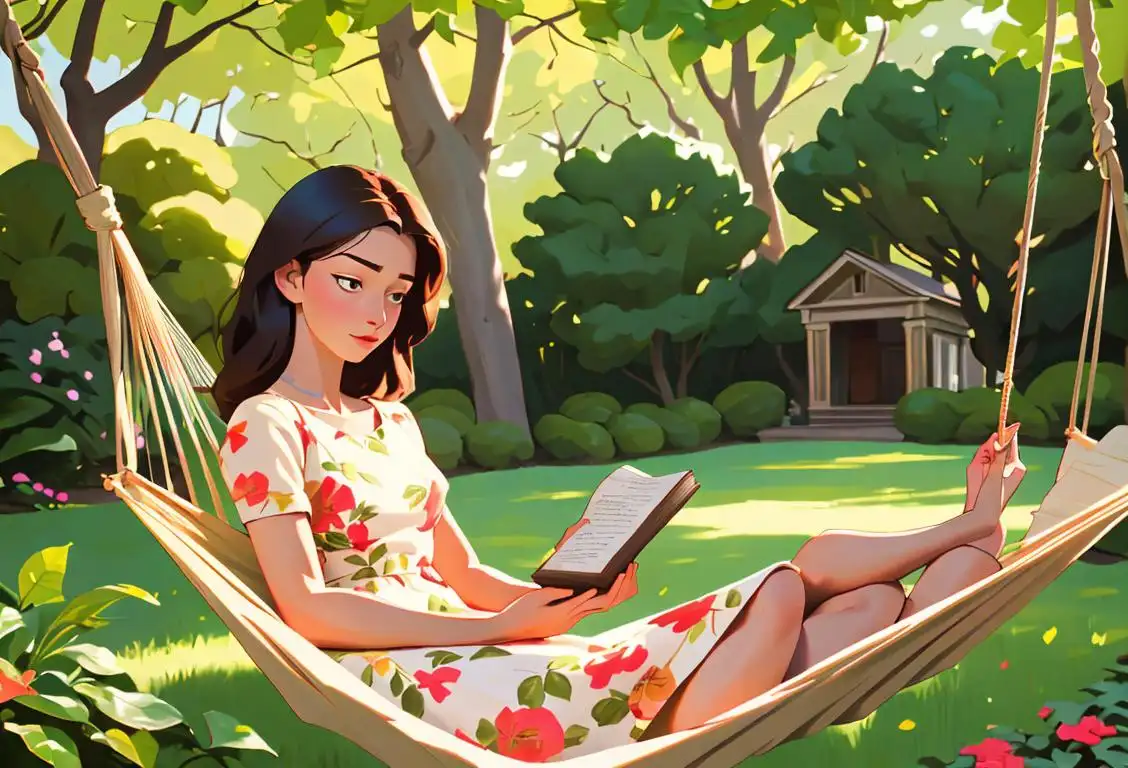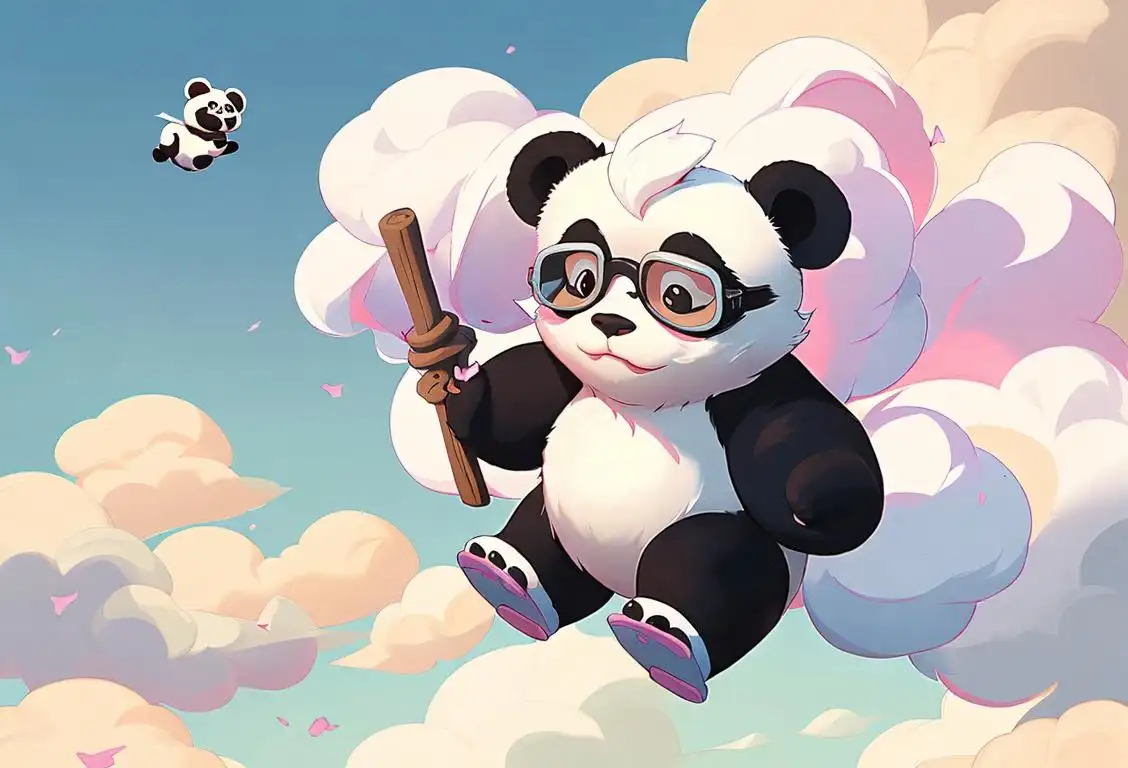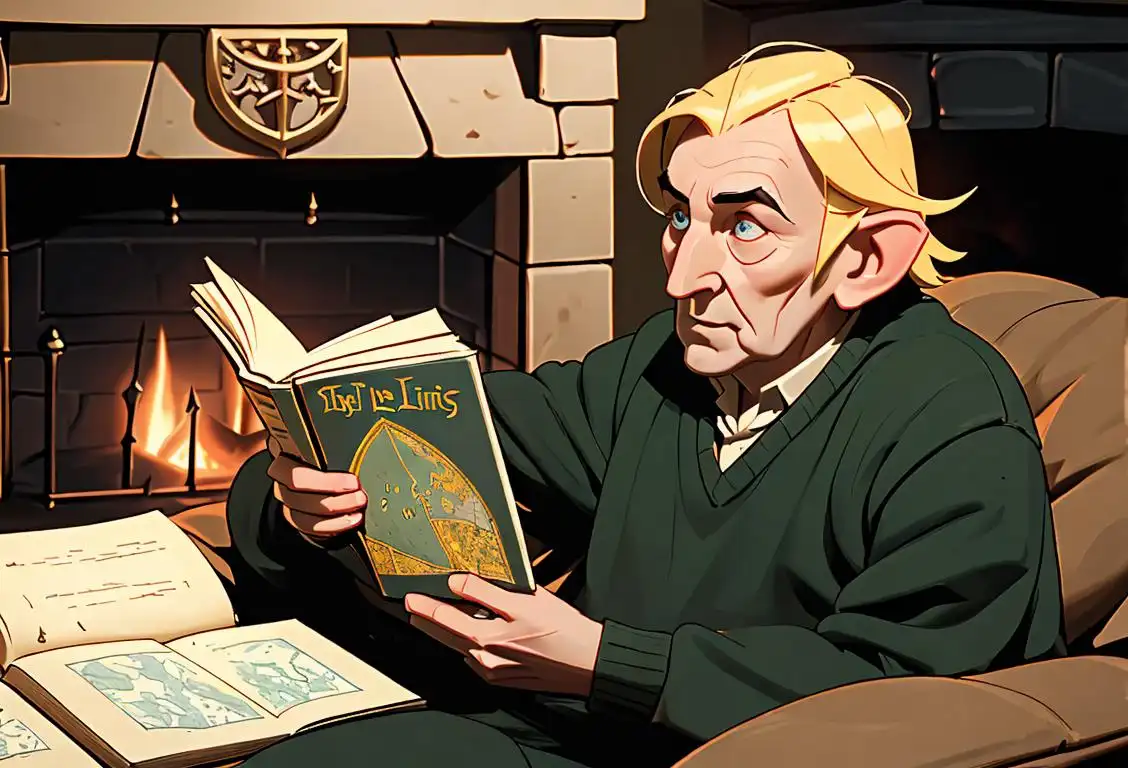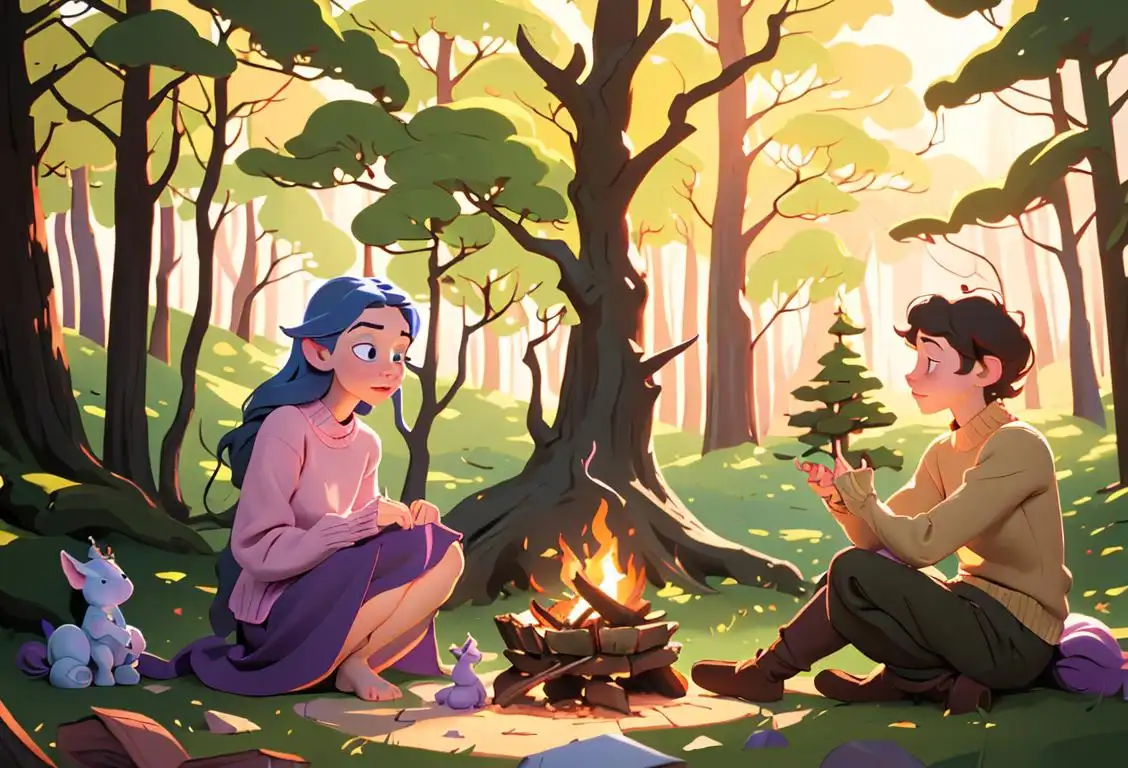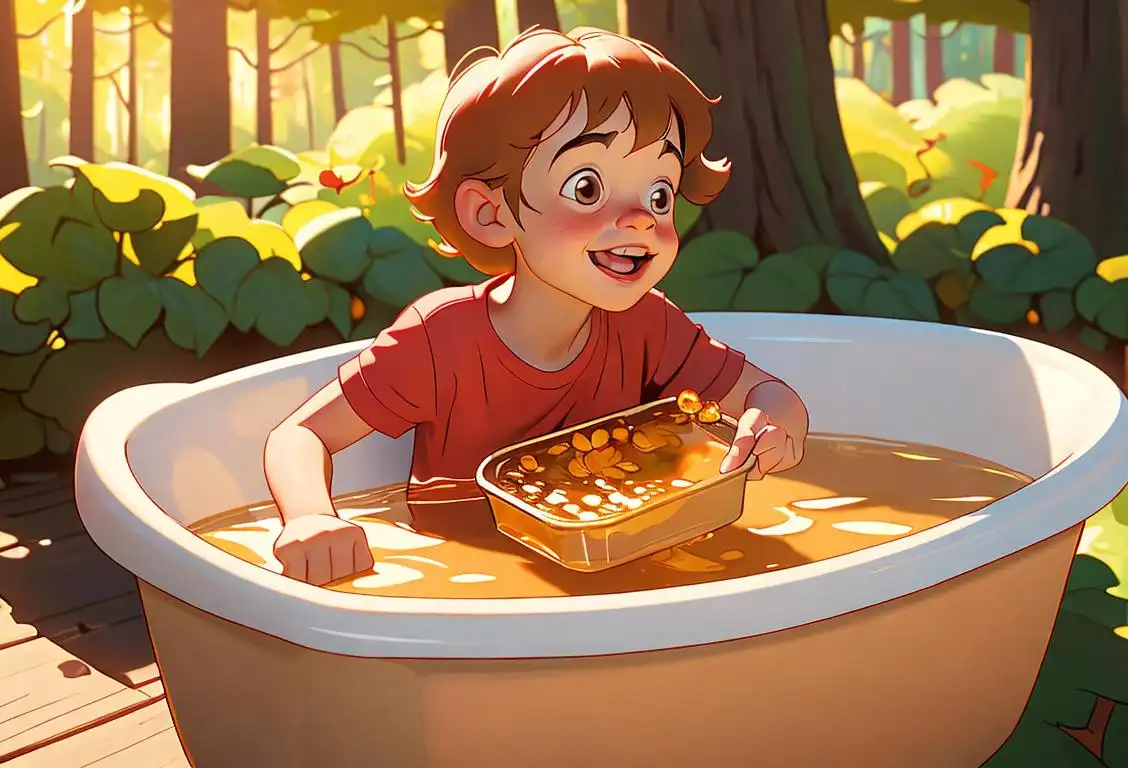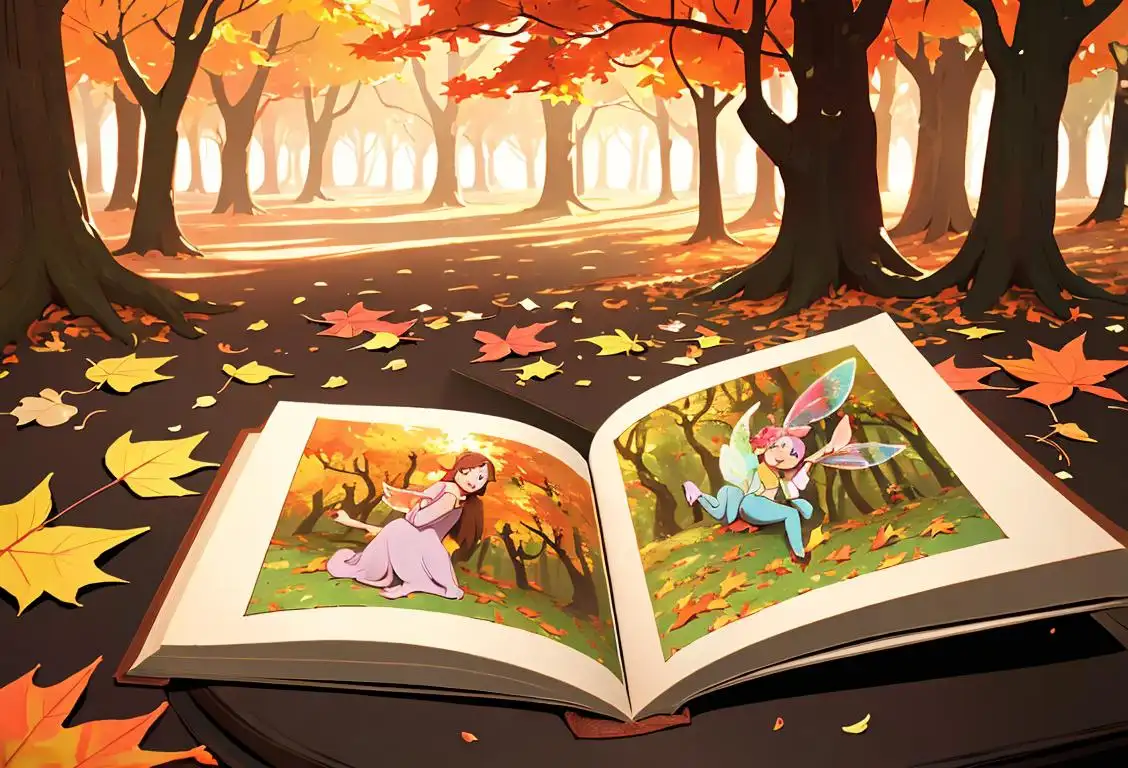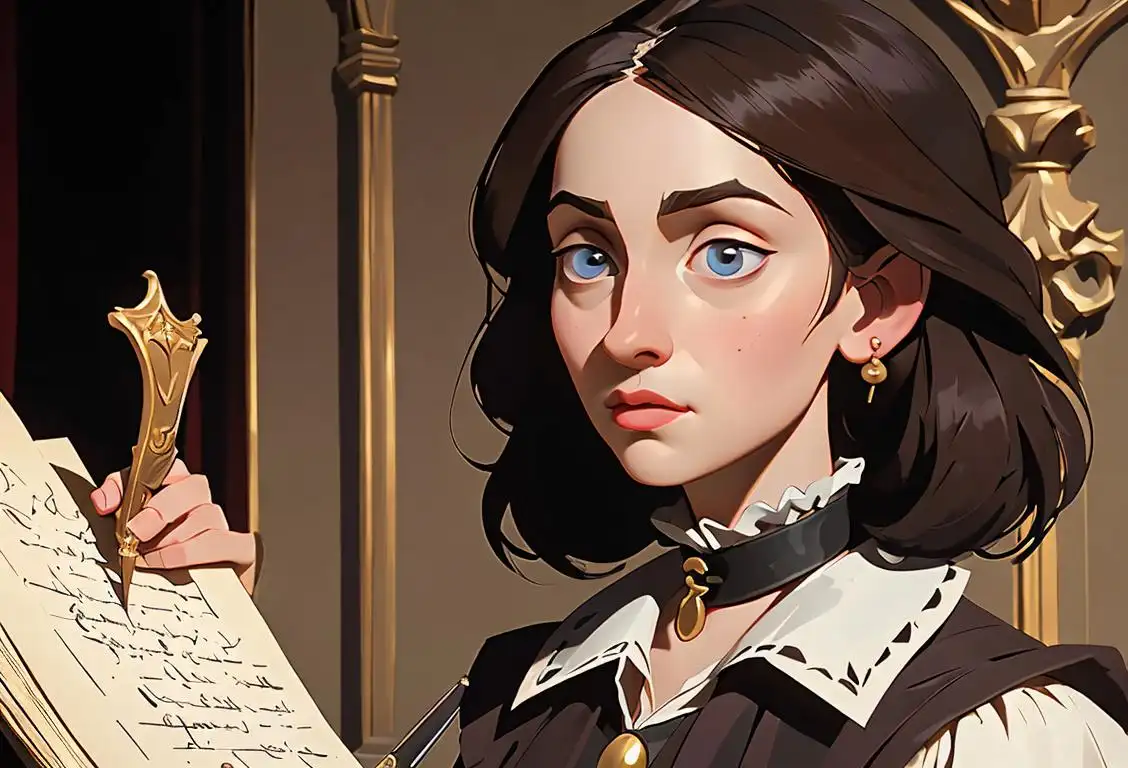National Fiction Day
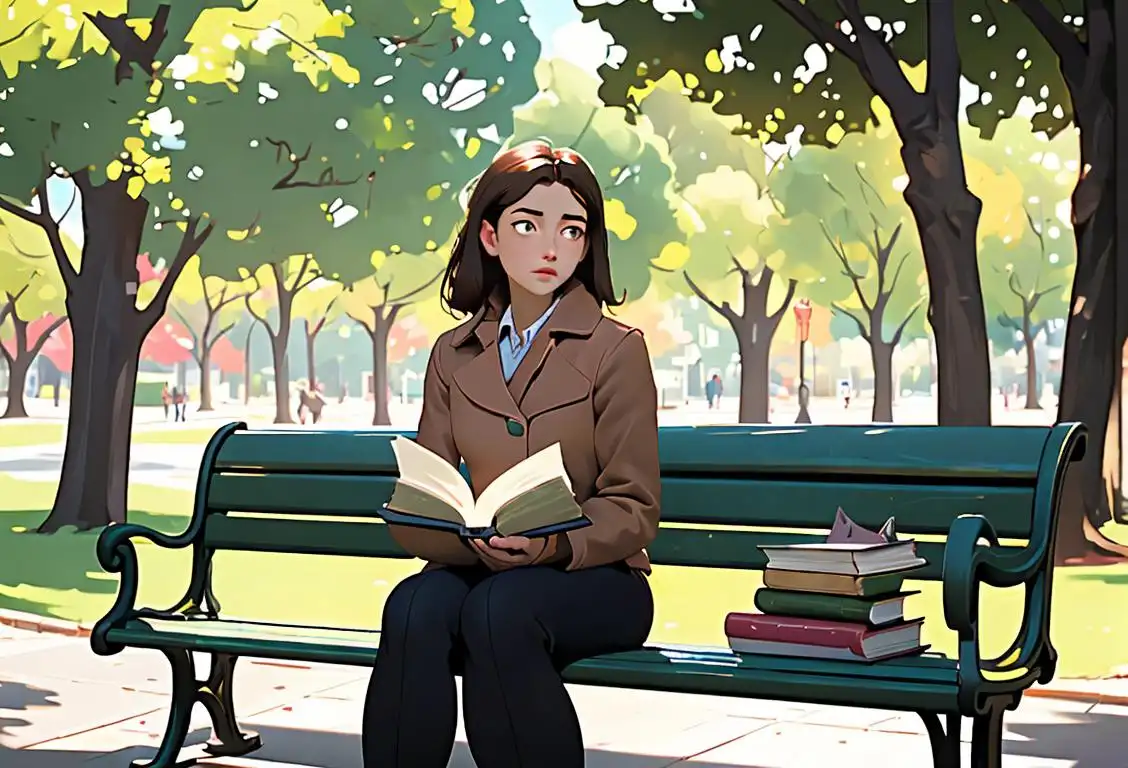
Welcome to the fascinating world of National Fiction Day! Get ready to dive headfirst into the realm of imagination, adventure, and gripping stories that will captivate your mind. Whether you're a fan of classic literature or prefer the thrills of a good mystery, National Fiction Day celebrates the power of storytelling in all its forms. So, grab a cozy blanket, a steaming cup of tea, and let's embark on a literary journey like no other!
When is Fiction Day?
It's national fiction day on the 3rd January.
The Origins of National Fiction Day
Now, you might be wondering, 'How did National Fiction Day come into existence?' Well, dear reader, let me enlighten you. The internet is a strange and unpredictable place, filled with peculiar days dedicated to almost everything under the sun. National Fiction Day emerged from this virtual realm, becoming a beacon of celebration for bookworms, writers, and everyone who appreciates the magic of fiction.
On January 3, 2016, the internet exploded with excitement as users across various platforms started proclaiming their love for fictional tales. From heartfelt tributes to their favorite authors to sharing recommendations for must-read books, the online community came together to honor the impact of fiction on their lives.
Since then, National Fiction Day has been celebrated annually on January 3rd, serving as a reminder to indulge in immersive worlds, complex characters, and heart-stopping plot twists.
The Importance of Fiction in our Lives
Why is fiction such a cherished and integral part of our lives? It's simple: storytelling allows us to escape reality, embark on grand adventures, and experience emotions we might not encounter in our day-to-day lives. Fiction has the power to transport us to different eras, galaxies far, far away, or even alternate dimensions.
It opens our minds, challenges our perspectives, and encourages empathy as we step into the shoes of characters from varied backgrounds. Whether it's losing ourselves in the enchanting wizarding world of Harry Potter or unraveling mysteries alongside Sherlock Holmes, fiction provides us with endless opportunities for growth, inspiration, and pure entertainment.
How to Celebrate National Fiction Day
Now that you're brimming with anticipation, you're probably wondering how to make the most of this special day. Fear not, dear reader, for I have compiled a list of delightful ways you can celebrate National Fiction Day:
- Immerse yourself in a captivating novel that has been gathering dust on your bookshelf for far too long.
- Organize a book-swap party with friends and exchange your favorite literary gems.
- Challenge yourself with a reading marathon and see just how many books you can devour in one day!
- Attend a local book club meeting or join online literary communities to connect with fellow book lovers.
- Dabble in some creative writing by penning your own short story or poem.
- Get cozy with a collection of short stories and revel in the art of storytelling in bite-sized portions.
- Host a book-themed movie night and watch film adaptations of beloved novels.
Remember, the possibilities are as endless as the stories waiting to be discovered on bookshelves around the world. So, let your imagination soar and immerse yourself in the enchanting world of fiction!
History behind the term 'Fiction'
14th century
Emergence of Fiction
The term 'fiction' originated in the 14th century from the Middle English word 'ficcioun,' which was derived from the Old French word 'fiction.' It initially referred to the act of fashioning or shaping something, or the act of devising or imagining a story or narrative. In this early period, 'fiction' had a broader meaning and included various forms of storytelling and creative works.
1566
Emergence of the term 'fiction'
The term 'fiction' originated in the year 1566 from the Latin word 'fictio' which means 'a fashioning or shaping'. In its early usage, 'fiction' primarily referred to the act of inventing or creating something imaginative or unreal. The concept of fiction was closely associated with the idea of storytelling and the imaginative expression of ideas.
14th century
Emergence of the Term 'Fiction'
The term 'fiction' originated in the 14th century from the Middle English word 'fictioun,' derived from the Latin word 'fictio' meaning 'a shaping, a fashioning.' It initially referred to an act of creating or inventing something, without specifically denoting literary works.
16th century
Fiction Literature
During the 16th century, the term 'fiction' started to be associated more specifically with literary works of the imagination. It became closely linked to prose narratives that presented imaginative or invented characters and events. These works allowed readers to escape reality and explore imaginary worlds. Fiction literature gained popularity and began to influence various forms of entertainment and storytelling.
17th Century
Development of fictional narrative
During the 17th century, the term 'fiction' became more commonly used to describe works of literature that presented imaginative and invented narratives. Fictional stories, including novels and plays, gained popularity as a form of entertainment, allowing people to escape their own realities and immerse themselves in captivating fictional worlds. This period saw the rise of renowned authors such as Cervantes, Shakespeare, and Molière, whose works contributed to the development and recognition of fiction as a distinct genre.
16th century
Evolution of 'Fiction' as Literary Genre
During the 16th century, the term 'fiction' gradually became associated with the creation of imaginative and made-up stories, specifically in the realm of literature. This marked the emergence of 'fiction' as a distinct genre of storytelling, separate from non-fictional accounts of factual events.
18th century
Rise of the Novel
In the 18th century, the novel emerged as a prominent literary form, leading to the further development of fiction as a genre. With authors like Daniel Defoe, Jonathan Swift, and Samuel Richardson, novels gained widespread recognition and popularity among readers. The novel became a platform for exploring human experiences, societal issues, and moral dilemmas. It allowed authors to create complex fictional characters and intricate plots, captivating readers' imaginations.
18th Century
The Enlightenment and the rise of the novel
The 18th century witnessed the flourishing of the novel as a prominent form of fiction. As the Age of Enlightenment spread intellectual ideas across Europe, the novel emerged as a powerful medium for exploring philosophical, social, and political concepts. Influential authors like Daniel Defoe, Jonathan Swift, and Samuel Richardson brought forth works that piqued readers' thinking, enhanced literacy rates, and paved the way for the novel's status as a respected literary art form.
18th century
Rise of the Novel as a Major Fictional Form
In the 18th century, the novel gained prominence as a popular form of fictional storytelling. This period saw the blossoming of renowned authors like Daniel Defoe, Jonathan Swift, and Samuel Richardson, who revolutionized the novel as a structured narrative genre. Fiction began to encompass a wide range of fictional prose, including epistolary novels and satirical works.
19th century
Expanding Genres
The 19th century witnessed the expansion of fiction into various subgenres. Romanticism and Gothic fiction captivated readers' interests with tales of love, mystery, and supernatural elements. The works of authors like Mary Shelley, Edgar Allan Poe, and Jane Austen introduced new dimensions to fictional storytelling. The diversity of genres provided readers with a wide range of fictional experiences and contributed to the popularity of fiction across different demographics.
19th century
Expansion of Genres within Fiction
The 19th century witnessed a significant expansion of genres within the realm of fiction. Works of romantic fiction, gothic novels, science fiction, and detective stories gained popularity and began to explore new themes and narrative styles. Authors like Jane Austen, Edgar Allan Poe, and H.G. Wells contributed to the diversification of fiction during this period.
19th Century
Romanticism and the diversity of fiction
In the 19th century, the Romantic movement brought about a significant shift in the focus of fiction. Romantic authors, such as Mary Shelley, Edgar Allan Poe, and Victor Hugo, infused their works with intense emotions, heightened imagination, and a fascination for the supernatural. The diverse range of themes and styles explored during this period contributed to the recognition of fiction as a multifaceted genre capable of evoking and examining the depths of human experience.
20th century
Modern Fiction
With the dawn of the 20th century, fiction continued to evolve and adapt to changing societal norms and technological advancements. The emergence of modernism challenged traditional narrative structures and embraced experimentation in form and style. Authors like Virginia Woolf, James Joyce, and Franz Kafka pushed the boundaries of fiction, exploring themes of identity, consciousness, and the human condition. The 20th century also witnessed the rise of various literary movements where authors utilized fiction as a tool to critique and reflect upon society.
20th century
Modernism and Postmodernism in Fiction
The 20th century brought forth distinctive movements in fiction, with modernism and postmodernism reshaping the literary landscape. Modernist writers like Virginia Woolf and James Joyce experimented with narrative techniques, stream of consciousness, and fragmented structures. Postmodernist authors like Jorge Luis Borges and Italo Calvino challenged traditional notions of storytelling, blurring the lines between reality and fiction.
20th Century
Modernism and the experimentation with fiction
The 20th century marked a period of experimentation and innovation within the realm of fiction. Influenced by movements like modernism and postmodernism, writers like Virginia Woolf, James Joyce, and William Faulkner challenged traditional narrative structures, disrupted linear storytelling, and explored the subjective nature of reality. This era witnessed the emergence of various subgenres, such as science fiction, detective fiction, and magical realism, expanding the boundaries of what could be considered fiction.
Present
Continuing Evolution in the Digital Age
In the present day, fiction has adapted and evolved alongside digital advancements. E-books, audiobooks, and online platforms have transformed the way fiction is consumed, providing new avenues for emerging authors and widening the global reach of storytelling. Fiction remains an integral part of human culture, allowing us to explore imaginative worlds and gain insights into the complexities of the human experience.
21st Century
Digital revolution and the evolution of fiction
In the 21st century, fiction has undergone further evolution due to the advent of digital technology. E-books, audiobooks, and online platforms have transformed the way stories are consumed and shared, allowing for an unprecedented global reach. The rise of self-publishing and the proliferation of fan fiction communities have democratized the creation and circulation of fictional works. Furthermore, immersive storytelling experiences through virtual reality and interactive narratives have opened new frontiers for the future of fiction.
Present
Fiction Today
In the present day, fiction remains a vital part of literature and popular culture. It continues to evolve with new genres, themes, and storytelling techniques. Fiction is not limited to books alone but extends to movies, television shows, and digital platforms. It serves as a means of entertainment, escapism, and exploration of human experiences and emotions. With countless talented authors worldwide, fiction continues to captivate and inspire readers of all ages.
Did you know?
Did you know that J.R.R. Tolkien typed the entire Lord of the Rings trilogy using just two fingers? Talk about embracing the quest for literary greatness!Tagged
fun imagination literatureFirst identified
3rd January 2016Most mentioned on
3rd January 2016Total mentions
8Other days
Fiction Day
Frankenstein Day
Book Lovers Day
Drop Everything And Read Day
Flyer Panda Day
Tolkien Reading Day
Tell A Fairytale Day
Winnie The Pooh Day
Book Day
Shakespeare Day
